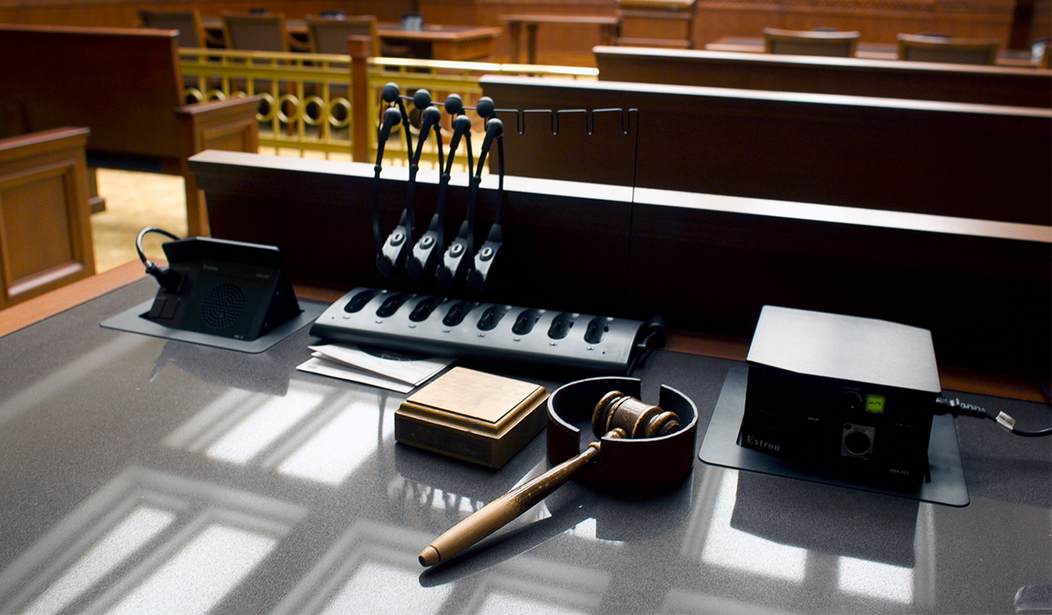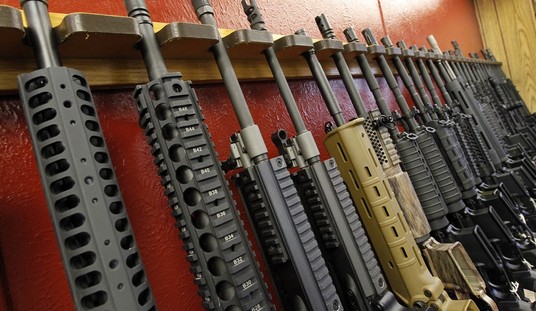A federal judge in Mississippi who garnered headlines two years ago for complaining from the bench about the Supreme Court's decision in NYSRPA v. Bruen is at it again.
In 2023, U.S. District Judge Carlton Reeves dismissed a felon-in-possession case brought by federal prosecutors, but not before bitching about SCOTUS's Second Amendment jurisprudence. "An overwhelming majority of historians reject the Supreme Court’s most fundamental Second Amendment holding — its 2008 conclusion that the Amendment protects an individual right to bear arms, rather than a collective, Militia-based right,” Reeves bizarrely claimed at the time.
The judge made the same assertion this week in U.S. v. Justin Bryce Brown. While Reeves threw out the charges against Brown, in his opinion he made it clear that he was doing so under protest.
Because he has never been convicted of a felony, [Brown] argues that the Second Amendment protects him from criminal prosecution under these statutes. He is, in other words, bringing an “as-applied” challenge to his prosecution.
Mr. Brown’s argument was once foreclosed by decades of precedent. Not anymore. In 2022, the Supreme Court “established a new historical paradigm for analyzing Second Amendment claims.” Every appellate court’s “prior precedent” was rendered “obsolete."
Under the new standard, the government must prove that its desired firearm restriction—which here, means the statute criminalizing simple machinegun possession—is “consistent with the Nation’s historical tradition of firearm regulation.”
... The age-old problem of judging is how to honor an individual’s Constitutional rights and respect the will of a democratically-elected majority. We look to history to try and find a satisfying answer to that dilemma. But this Court has its doubts that the historical approach wielded in these recent Second Amendment cases is the right one.
Bruen specifically requires judges to follow “history and tradition,” evaluate whether new laws are “relevantly similar” to past laws, and determine whether certain firearms are “dangerous and unusual.” These tests are deeply concerning to many. They will continue to generate “confused and confusing lower court precedent.”
But step back from that for a moment.
At their core, the Supreme Court’s recent Second Amendment cases are predicated upon a lack of trust. The Heller, McDonald, and Bruen decisions did not trust that local and state lawmakers had protected their citizens’ Second Amendment rights, or would protect them going forward. The decisions also expressed doubt that federal courts were doing enough to protect those rights. New boundaries were set. They used history as the first and most important test of legality, as if history would be a more trustworthy and reliable guide to constitutional law.
The ultimate irony is that the version of history endorsed in these (and other) decisions has itself been deemed untrustworthy by actual historians. The experts don’t think lawyers and judges have gotten it right. And, unfortunately, the lack of trust inherent in these decisions cannot be untangled from the public’s declining trust in Article III itself.
Any historian who still insists that the Second Amendment was never meant to protect an individual right to keep and bear arms until the Supreme Court issued its decision in Heller should be viewed as a hack, frankly. There's an overwhelming amount of evidence to the contrary that dates back to the decades before the Second Amendment was ratified, and the historical record is replete with references to a right to keep and bear arms unconnected to service in a militia throughout our nation's history. There might well be debate over the contours of that right, but both the text of the Second Amendment and the national tradition of gun ownership clearly indicates that its one possessed by individual citizens.
Reeves ended up tossing out charges against Brown because the government failed to demonstrate that the modern restrictions on machine gun possession have no historical analogue, as well as the DOJ's inability to show that machine guns are both "dangerous" and "unusual". Despite his obvious issues with the Supreme Court's Second Amendment jurisprudence, I'll give him credit for abiding by the Court's "text, history, and tradition" test instead of making some of the more ridiculous claims that we've seen from other federal judges, including the assertion by the Fourth Circuit Court of Appeals that semi-automatic firearms aren't protected by the Second Amendment because they're "like" machine guns and are "unusually dangerous."
I'd much rather have a judge like Reeves who complains about the Heller, McDonald, and Bruen decisions while adhering to the Court's decisions than a judge who pays lip service to treating the Second Amendment as a fundamental right while eviscerating its protections. Now we'll see if newly-appointed Attorney General Pam Bondi will direct prosecutors to appeal Reeves' decision to the Fifth Circuit Court of Appeals or if the DOJ will simply take the loss at the district court level.









